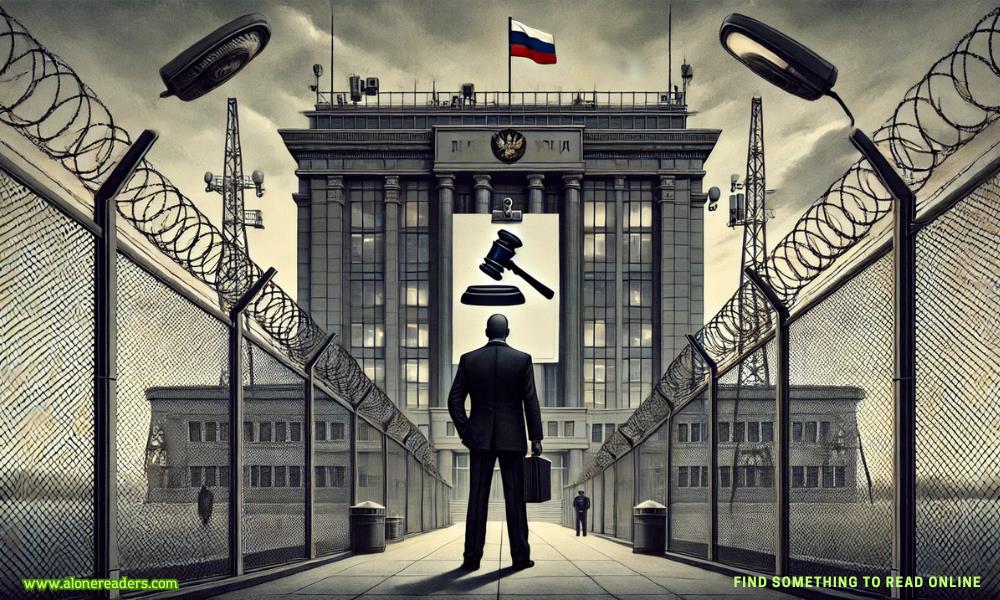Page 73 of All Good People Here
“Okay. Cool.” She poured herself a coffee and took a sip.
“Hey, kid?”
Margot looked up.
“I’m really glad you’re here.”
Her throat tightened. “Yeah. Me too.”
Margot spent the rest of the day editing and getting more quotes. She knew that by the time the papers came out tomorrow morning, everyone across Indiana would have some sort of blurb on Wallace’s arrest. But no one would have anything near as extensive as she did, and by the time her piece was finished, she felt prouder of it than she had of anything she’d ever written before. She sent off the final to Adrienne around six that evening, then she printed off a copy, stuck it into her back pocket, and with a quick goodbye to Luke, promising she’d be home soon with a pizza in hand, she slipped out into the waning light of the day.
—
Five minutes later, Margot had walked to the Jacobs place and was knocking on Billy’s door.
For Margot, finding Elliott Wallace had given her a sense ofclosure about January’s case, a sense of peace. But for Billy, she knew, the news of Wallace was vastly more complicated. While it gave him the answers he’d no doubt long been seeking, it also inflicted the fresh pain of knowing his only daughter had been stalked in her own town and snatched from her own home by a very depraved man. When Margot told him the news on the phone earlier, Billy had broken down, and she wanted to give him the gift of reading the details early and in private.
After a moment, she heard footsteps approach, then the front door creaked open. In the sliver between the door and its frame, Margot saw Billy’s blue eyes peering out. When he registered her face, he opened the door wide, smiling broadly.
“Margot.”
She smiled back. “Hi, Billy. Sorry to bother you. I just walked over because I wanted to give you this.” She grabbed the printed copy of her article from her pocket and held it out. “It’s the story running in tomorrow’s paper.”
“Oh.” His face wobbled and he pressed his lips together tightly as he accepted the pages.
“Thank you for speaking with me the other day,” Margot said, giving him a moment to collect himself. “And for your quote.”
She wasn’t going to point out that he’d whitewashed the truth about his family during that first interview, because he’d been trying to protect Krissy, who’d been trying to protect Jace. And although the two of them may have unwittingly damaged an investigation that could have led the police to Wallace all those years ago, Margot understood all too well the instinct to protect your family.
Billy looked up from the pages, his eyes blinking furiously. “No.” He shook his head. “Thank you. For everything.”
She nodded. The moment felt both monumental and like nothing at all.
“Would you, um”—he cleared his throat—“would you like acup of coffee? I know it’s almost dinnertime, but…” He shrugged, looking a bit awkward.
“Coffee would be great.”
Margot stepped over the threshold into the old familiar house, following Billy through the hallway of family photos. As a reporter, she’d always believed that understanding the truth was one of the most important things in the world, but as her eyes flicked over the images of his children, whom he’d not fathered, and his wife, who’d loved another, Margot wondered if sometimes believing a lie was better. There was no point in Billy learning the truth about his family. It would only tear him apart.
They walked into the kitchen, where he already had a pot of coffee on. He pulled an old ceramic mug from a shelf and filled it with coffee then topped off his own. “Milk or sugar?”
“Milk, please.”
They settled at the kitchen table together, and Margot couldn’t help her gaze drifting to the white walls where those terrible words had been written all those years ago. It was ironic, knowing they’d been written out of love rather than hate.
Across from her, Billy cleared his throat. “I can’t believe you figured it out. After all this time. You were just the little girl from across the street. I was here and I couldn’t even see.” His face flared with sudden emotion. “I should’ve seen.”
Margot studied him. Although she’d slept a total of four hours over the past thirty-six, Billy looked more exhausted than she felt. “You know…” she said, keeping her voice gentle. “Wallace kept his distance when he was stalking those girls. Especially with January. It was his first time to do it and he was cautious.”
The plastic box with January’s name had been the sparsest of them all. Wallace had saved a few of her dance programs—the parallel to Luke had sent a chill up Margot’s spine—but other than that, he’d collected nothing that had belonged to her. And the stack of photos in her container had been thin. While he’dprobably had two dozen of Natalie Clark, he’d only had five of January, all of which had been taken from afar. Although he’d made enough contact with January that she told Jace his name, it was clear to Margot that, when he was stalking her, he hadn’t yet worked out how to be the predator he’d evolved into. It was why January’s murder was unlike those of the other seven.
Margot had gone over it a hundred times, piecing together what must have happened that night, and what she’d come up with was that Wallace had walked through the unlocked door, planning to simply walk back out with January in tow. But something had gone wrong along the way. Perhaps, as Krissy had always purported, January had fought back or cried out, and Wallace had panicked. He’d either bashed her head in, most likely with a weapon he’d brought with him, then left her body at the bottom of the basement stairs, or they’d scuffled in the kitchen and he’d thrown her down there, where she’d cracked her head on the concrete floor.
It was why January was his only victim not to have sustained sexual abuse before her death. And that made Wallace change his MO. After January, he started taking girls from playgrounds and parking lots, where it was easier to abandon the plan if it didn’t work.
“I think,” Margot said, “especially in January’s case, it would’ve been hard to notice anything was wrong until it was.” She may have been overinflating this—after all, Wallace had made contact with January, probably multiple times—but she felt sorry for the man sitting across from her. He’d had everything taken away from him and she wanted to give some of it back, to erase some of the guilt he’d lived with for the past twenty-five years.
“Do you have kids, Margot?” he asked.
- Beneath the Burn by Pam Godwin
- Unhinged by Jane Henry
- Praise Me: Soldier by Jessa Kane
- Irresistible Temptation by Tory Baker
- The Brat and the Bodyguard by S.E. Law
- Seduced By the Mafia Don by Flora Ferrari
- However You Want Me by W. Winters
- Mountain Protector by Stella Banks
- Kissing My Brother's Best Friend by Lena Little
- Tempted By the Devil by Sienne Vega
- Husband for the Holidays by Dani Collins
- Arranged by Piper Stone
- Redemption by Tori Fox
- Inked Soul by Jade Marshall
- Speed by R.J. Scott
- Always You by R.J. Scott







